- Home
- L. Ron Hubbard
Trouble on His Wings Page 3
Trouble on His Wings Read online
Page 3
“You?” said Felznick. “You? Go over to Long Island, Mr. Johnny Brice. Just as soon as I get an assignment that’s an ‘assignment,’ you’ll know what about you.”
Johnny sighed dolefully, battered by the hurrying crews who raced past him and down the stairs. “Seven years in the racket and that’s the first bull.” He shook his head and moved over the edge of the lake of sea water which had slowly formed about his feet. He knew very well what Felznick meant when he said “assignment.” Johnny wouldn’t see New York for months. He’d be shot from spot news to spot news, always on the go, worn out. . . .
“Got a swim out of it anyway,” he muttered to himself, climbing into the small studio car.
Chapter Two
JUPITER banged into Mars and eighty police sirens shrieked down the Milky Way, while Johnny embattled Neptune, warding off the wicked trident with the Empire State Building. And all the while, the captain of the SS Birmingham Alabama was suspended in mid air, banging Johnny on the head with a bung starter and weeping softly, “I told you so. I told you so.”
“Oh, my head,” groaned Johnny, swimming up through murky depths to arrive at last in the bedroom of his Long Island apartment, mutually shared with Irish.
A patch of chill on his brow startled him and his lids sprung up to behold, not Neptune, but Irish sadly messing with an ice bag.
“How’s that?” said Irish.
“Heaven,” whispered Johnny, closing his eyes again.
“What happened to you? Where’d you go? How come you went on a bender? You never did that all this year. Was everything all right? You come in with the help of a cop and a taxi driver, crying, ‘All is lost! All is lost!’ I paid the bill. It was thirty-nine dollars and twenty-one cents. What’d you lose?”
“Please,” begged Johnny, pulling the sheet up over his face.
“Where’d you go?” persisted Irish. “How come all is lost?”
“Will you go away?” said Johnny.
Irish went away, but he came back—bringing a tumbler made up of tomato juice and red pepper and Worcestershire sauce. There was a determined gleam on Irish’s small face. In a moment, before Johnny knew what had happened, Irish had thrown the contents down his throat. Johnny yelled. He opened and shut his mouth like a dying fish. And then, seeing that no flames were shooting out of his throat and that he had not exploded, he sank back into the pillow.
“Now what’s lost?” said the merciless Irish. “What’d you do?”
Johnny gazed hopelessly upon his helper. He felt too weak to throw a pillow at him and shut him up. With a weary sigh, Johnny said, “We’re in the soup.” He thought about it for a while, gradually remembering just why they were in the soup, and then he added, “No pictures. They’d all been soaked in sea water when the passengers took to the drink. That’s it. There wasn’t one good film in that batch, and you . . . let’s see . . . you didn’t get a shot of the ship from the air.”
“Gosh,” said Irish in mortified recollection. “Gosh, I forgot. I . . . I was so scared you’d drown, I didn’t think about that hand camera.”
“You’ll never make a cameraman,” said Johnny sadly, overlooking the fact that Irish had been one for years. “You gotta think about pictures, nothin’ but pictures and only pictures and . . .” he subsided. Finally he turned over with a curse. “To hell with pictures, to hell with everything. I make one bull in seven years and I get it hot and heavy. I’m going to quit. That’s what I’ll do, I’ll quit. It’s a lousy life. Two hundred and fifty a week—for what? For tryin’ to get yourself killed. Two hundred and fifty a week to take pictures! To hell with the pictures. I never want to see another picture as long as I live! You hear that, Irish? I never want to turn another crank! I’ll buy a chicken ranch, that’s what I’ll do. I’ll buy a chicken ranch and do like that salesman said. Two chickens will get you a million three hundred thousand in two years. That’s the life. No more of this hell and glory. No more of this gettin’ up in the middle of the night rushing off to trouble. Trouble! That’s what it is! News is trouble, and nothin’ but trouble. I’m through. I quit. I’m sick of trouble. . . . Gimme that phone!”
Irish, with grimly compressed mouth, gave him the phone. It was a direct wire and he snarled, “Gimme Felznick . . . That’s what I said. Gimme Felznick and tell’m this is Johnny Brice.” With a ferocious scowl, he eyed Irish. “I’ll tell him what he can do with his job. Two hundred and fifty a week for tryin’ to kill yourself. I’ll—” His gaze lighted upon a basket of flowers on the bureau behind Irish. “Where’d those come from?”
“Dunno,” said Irish. “Here’s the card.”
Johnny looked at it. His brows contracted and he paled. “Read that!”
Irish read, “To Johnny with all my love in appreciation of giving me such a lovely scoop; Bert Goddard. PS Don’t forget you borrowed a hundred off me last night. Love and kisses.”
Irish was about to swear, but he heard Johnny at the phone.
“Yes, Mr. Felznick . . . No, Mr. Felznick. Where? Idaho? But my gosh, Mr. Felznick, how . . . But I . . . Yes, Mr. Felznick.” He hung up, and dared Irish to say anything. “Get something packed.”
“Where we goin’?” said Irish.
“Idaho. Ninety-thousand-acre forest fire, three towns cut off from the blaze. . . . I knew it. I knew it. He’s picked the farthest place he could find, that’s what he’s done, the old—” And then he saw the flowers. “Love and kisses! Wait’ll I meet that guy Goddard! Just wait. G’wan! What the hell are you standing there for? Get something packed.”
Irish looked embarrassed and backed away from the door he had started through.
Johnny started to speak luridly, but stopped, startled to behold a lovely young lady in his silk dressing gown. She came almost timidly to the threshold of the room.
“What—?” began Johnny. And then, “Oh, so it’s you again, is it? Why don’t you go home?”
Unable to thoroughly appreciate that she was getting the brunt of the rage felt against Goddard and Felznick, she backed up at the snarl in his voice. She wasn’t at all sure of herself or her welcomeness, and her eyes grew suspiciously bright.
“I . . . I haven’t any place to go. I can’t go any place! They’d get me. Don’t send me away. Please, Mr. Brice, don’t throw me out. I’ll be awful good. I’ll keep your place clean and cook your meals. I’ll be careful and not get in your way. And I won’t eat much, honest I won’t.”
Johnny realized that he had been very rough and that he was making himself look like a brute. And so he got rougher, because it made him mad. “I don’t care what you do, but get out of my sight. You . . . you damned Jonah! That’s what you are, a Jonah. I pick you up and make the first bull I’ve made in seven years. And now what? And now I’ve got to go to Idaho and mebbe get burned up in somebody’s lousy forest fire. I never had any bad luck until you came along.” Again he realized that he was taking out his utter wretchedness upon her, that he was using her for an alibi for his own short-sightedness in not examining those films. And because it made him hate himself, he roared all the louder. “Beat it, and let me die in peace!”
Irish squirmed. “He’s upset, that’s all. Maybe we better go.” And, so saying, he pushed her out of the door.
Johnny glumly swung out of bed and stumbled to his shower. The cold water hit him like bullets and he gloried in the pain of it. But, while he rubbed himself down, he gradually smoothed out his temper and dwindled down to muttering only an occasional, “Idaho!”
He ate the breakfast Irish had had sent up from the restaurant below, stabbing at his fruit as though it was Felznick. “Publicity hound,” he growled. “Idaho!”
He drained his coffee cup, and when he set it back he noticed with detached interest that there was a note under the saucer. He pulled it out and read it.
Warning. If you don’t get rid of that dame and stop hiding her, you’ll be pushing up daisies.
He blinked at it and read it through again, to make sure he wasn’t seei
ng things. He turned it over, pondering upon the identity of the sender.
Irish brought him to himself. The pint-size was standing in the door with a grip in his hand.
“Look at this,” said Johnny.
Irish looked at it with knitted brows. “Who do you suppose sent this? Who’d be after that girl, huh? Maybe we better ditch her.”
“What?” said Johnny, getting ugly again. “You make me sick. What kind of a guy are you, anyhow? Somebody threatens you, so you get scared of your shadow. Haven’t you any guts? Somebody wants to knock off that girl. Huh, I’d like to meet ’em.”
Irish scratched his head in wonderment. “You couldn’t be figured out by Einstein,” he decided. “One minute you tell her to get out, and then as soon as she gets like dynamite, you want her to stick around. Contrary?!”
“Shut up,” said Johnny.
The girl was in the door again and Johnny looked at her, frowning. “You ever been to Idaho?”
“Why . . . no.”
“You’re goin’,” said Johnny. “Got any clothes?”
“No.”
“Irish, go buy her some clothes. . . . No, wait. That’ll never do. Look, somebody might see you buying them. This place might be watched.”
“Watched?” said the girl.
Johnny got up and handed her the note. She gave a start and her eyes grew very round. She swallowed convulsively. A moment later she had composed herself.
“You’re Irish’s size,” said Johnny. “And your hair is short enough to put under a helmet. Irish, go get her some of your clothes.”
“You mean you’ll take me to Idaho?” she said, with relief.
“Who’s after you, and what’s this all about?” demanded Irish.
“I . . . no, I can’t tell you. But you’ve got to be careful. They . . . they would do anything.”
“What the hell are you bullyin’ her for?” Johnny demanded of Irish. “Go get her some clothes, and stop runnin’ off at the mouth.” He took up the phone and got the airport wire.
“Run out the cabin job, Steve. We’re headed for Idaho.”
Chapter Three
ROARING westward, Johnny Brice had ample time both to look at and wonder about this strange girl who had so suddenly become a part of his existence. When they stopped at Chicago, she was under great tension, eyes constantly roving the field and striving to appear unconcerned at the same time. That she labored under a heavy nerve strain was very apparent when they took off once more and she sank back into her seat, exhausted.
After that Johnny watched her intently from his seat across the cabin, letting Irish do most of the flying on the excuse that he, Johnny, was going to attempt some night shots of the vast forest fire which stretched along half a mountain range and imperiled—so the radio said—some five thousand lives if the wind changed. But that would all take care of itself in due time, and it would be soon enough for him to start worrying about saving their necks and getting the pictures at the same time.
He watched the girl, pretending to sleep, so that she would not again mask her real self. He was taken, now that he studied her, with the delicacy of her features and the smallness of her hands. Her honey-gold hair was delightfully real—and Johnny knew henna when he saw it and appreciated not seeing it. In turn, oblivious of his regard, she watched the country unroll below them, small ripples of pleasure going through her at the variety of colors of the checkerboard earth, of the dollhouse towns, always with their guardian church spires; it was apparently all new to her. She watched their shadow striving mightily to keep up with them, hastily leaping hedges and ditches, highways and hills. Still believing herself unobserved, she pulled the table around on its hinged brackets and took up the pencil there, writing slowly on a scratch pad, pausing now and then to look at the faraway earth, pencil poised against her lips and then writing again. It went on for some time, and finally Johnny’s curiosity got the better of him. He stood up quietly, but an air bump made him clutch his chair. She caught the motion and, in a flurry of embarrassment, wadded the paper into a ball.
“Let’s see it,” said Johnny.
She shook her head, tightening the wad. He reached out his hand, but before he had reached her, she had already lowered the window an inch and the white ball fled back and away.
“What were you writing?” said Johnny.
“Nothing.”
“You might at least confide in me. I have some rights.”
“It wasn’t anything,” she said, cheeks turning a deeper hue.
“It must have been,” said Johnny.
“It . . . it was some poetry,” she faltered.
He looked her askance and sat down, changing his attention to the Black Hills which slowly rose out of the horizon ahead. She pushed her hands down into the pockets of Irish’s flying jacket and studied Johnny.
“You don’t believe me,” she decided at last. “Maybe you thought I was framing a message or something. But, honest, it was poetry. This is the first time I have ever flown over the United States.”
“Why don’t you give me a break?” said Johnny. “I’m on your side.”
“You weren’t this morning,” she reminded him.
“Aw, can’t a guy blow off the steam of a hangover if he wants? And besides, it was funny that I’d pick you up and have my first bad luck in the movie business all at one and the same time. Give me a break. What’s your name and who’s after you, and why? I got influence, sometimes.”
“You . . . you couldn’t ever help me out of this . . . but then, I’ve said too much already.”
“Is it some smuggling outfit?”
“No.”
“Maybe it’s espionage.”
“N-No.”
“Maybe it’s the police.”
She didn’t answer, and he showed immediate interest. “Are the cops after you?”
“There’s no use trying to find out. It would be worth your life to know.”
“I’ve got some rights,” persisted Johnny, with a slow smile. “After all, when you pick up a ship at sea, you got rights. And I picked you out of the drink. Salvage, that’s what. I’ve got salvage rights on you. And you won’t even tell me your name.”
“Don’t make me tell,” she pleaded. “It . . . it would be the end of you.”
Johnny considered her calmly. “Something on the order of Medusa, eh?”
She was startled.
“Oh, cameramen can read, too,” smiled Johnny.
“I may be a Medusa, but perhaps you aren’t Perseus.”
“I don’t want your head,” said Johnny, “and I doubt that you’d turn me to stone. I only want to know what’s in it.”
“Does the right of salvage include that, too?”
“It does,” said Johnny, “but definitely.”
“Then, someday, if I live, perhaps I’ll tell you.” And that was all she would say.
Chapter Four
AGAINST the evening sky they could see the rosy glow of flame and before they had traveled much further, even at this height the smoke began to sting their eyes. And then, as they climbed, the whole earth below, it seemed, was one vast blanket of flame. To the north, like lightning, the crown fire was running. To the south the dead earth smoldered.
The girl stared down, appalled, feeling small and weak before this panorama of seared mountains. The drone of their engine seemed small and when the heat currents began to buffet their wings, knocking them about the sky, her heart stood in her throat, lest they be thrown down to cook in this hell. It was hot enough at three thousand feet.
Steadily Irish flew onward.
“How’s the gas?” said Johnny.
“Enough for a half-hour,” said Irish.
Johnny looked down. “There’s plenty of this. Think you can find a town and field in all this smoke?”
“Maybe, if it doesn’t get much darker.”
“Locate the field, if you can, but give me a break. I’m going to turn a crank on this.”
She watched h
im coolly set up and check the load of a DeVry. Irish was going up higher so they could get a better shot. She began to be nervous about the gas, about the possibility of finding a place to land in that angry expanse which stretched illimitably below their frail wings. The bumps lessened as they went higher.
“Might not have another chance,” said Johnny practically. “Might rain or something, and spoil the news.” He was turning his crank, eye fixed to a sight, tripod hugged against him to keep off some of the engine vibration. “Boy, this is a shot. Wish it was color. See those blue flames? That red sky . . . ? Boy!” His enthusiasm increased as he cranked. “Higher, Irish!” His eyes gleamed as he looked around for angles which would show the most flame. “Boy, we’re lucky. They might have put this out.”
Five thousand people and a hundred thousand timbered acres, she thought to herself.
“Wouldn’t it make some picture if we could get one of those towns burning?” said Irish.
“None of them are,” said the girl.
“But they might,” said Johnny hopefully.
“But where would we land?”
“We’ll worry about that when we get some of these pictures. Take her down, Irish. Got to get that crown fire. Might see some of the fighters from the air. Got two of them that were trapped, once,” he told the girl. “But no such luck this time.”
She shuddered, clutching the sides of her chair as they dived sickeningly down at the geysering flame below.
Johnny lined up the crown fire as it sped from treetop to treetop, one giant, terrifying path as far as they could see to the west.
“Got it?” cried Irish.
“Got it. Locate the town!”
Irish pulled back on the stick and they shot upward, out of choking smoke. But they did not go far. With a jarring cough, the engine missed a beat. And then it repeated in a swift succession of volleying backfires which sent a plume of red-blue flame out of their exhaust stack under the wing.
Irish put the nose down. The engine stopped entirely and all the sound there was came from below. It was a roar like surf, and the girl knew, with terror clutching at her heart, that that sound was the crown fire racing above the forest.

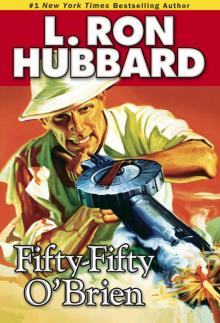 Fifty-Fifty O'Brien
Fifty-Fifty O'Brien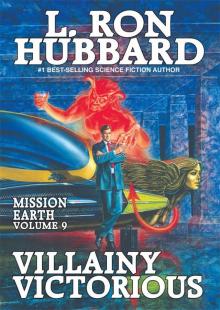 Villainy Victorious
Villainy Victorious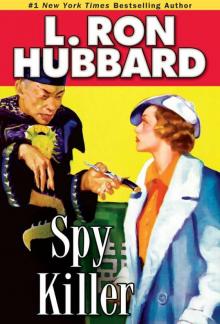 Spy Killer
Spy Killer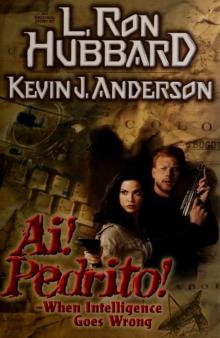 Ai! Pedrito!: When Intelligence Goes Wrong
Ai! Pedrito!: When Intelligence Goes Wrong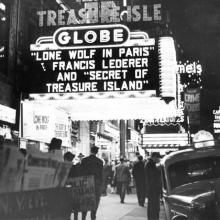 The Dangerous Dimension
The Dangerous Dimension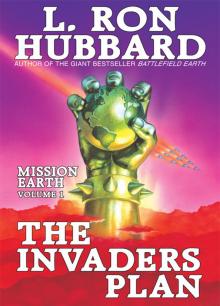 Mission Earth Volume 1: The Invaders Plan
Mission Earth Volume 1: The Invaders Plan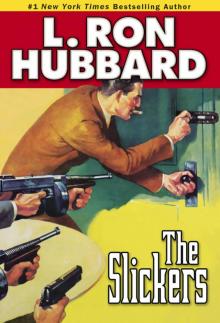 The Slickers
The Slickers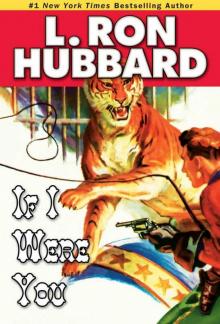 If I Were You
If I Were You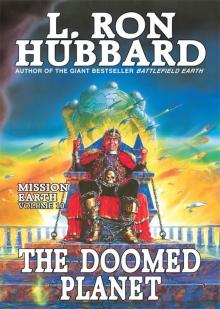 The Doomed Planet
The Doomed Planet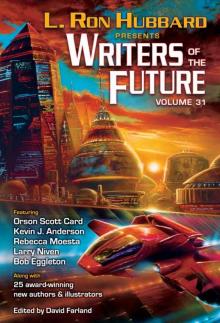 Writers of the Future Volume 31
Writers of the Future Volume 31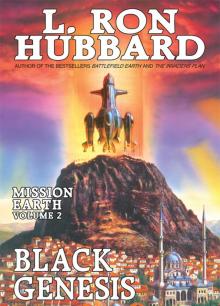 Mission Earth Volume 2: Black Genesis
Mission Earth Volume 2: Black Genesis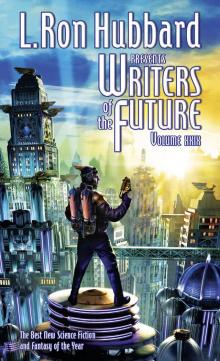 Writers of the Future: 29
Writers of the Future: 29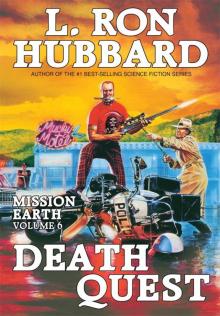 Death Quest
Death Quest The Enemy Within
The Enemy Within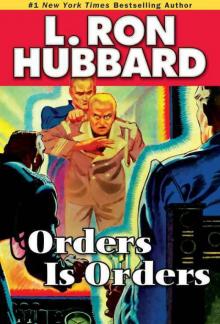 Orders Is Orders
Orders Is Orders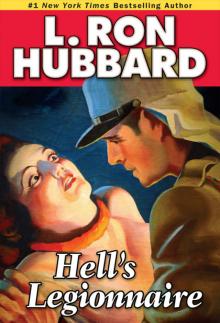 Hell's Legionnaire
Hell's Legionnaire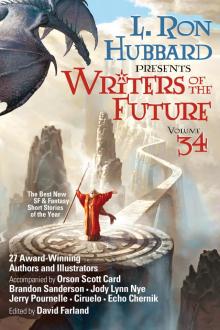 L. Ron Hubbard Presents Writers of the Future 34
L. Ron Hubbard Presents Writers of the Future 34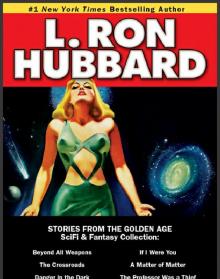 The Scifi & Fantasy Collection
The Scifi & Fantasy Collection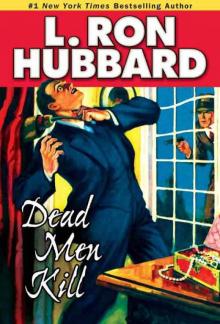 Dead Men Kill
Dead Men Kill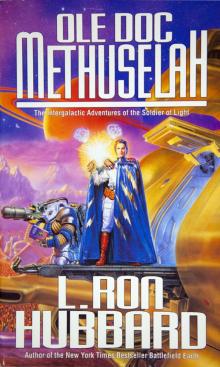 Ole Doc Methuselah: The Intergalactic Adventures of the Soldier of Light
Ole Doc Methuselah: The Intergalactic Adventures of the Soldier of Light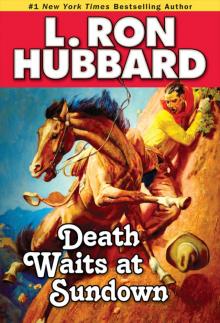 Shadows From Boot Hill
Shadows From Boot Hill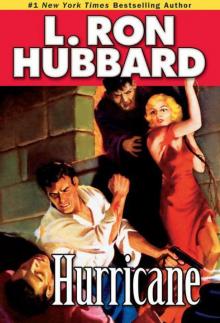 Hurricane
Hurricane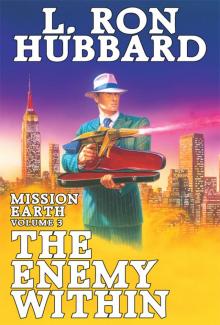 Mission Earth Volume 3: The Enemy Within
Mission Earth Volume 3: The Enemy Within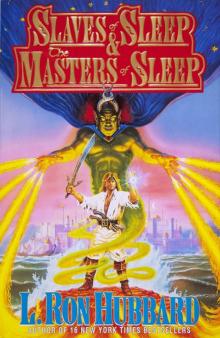 Slaves of Sleep & the Masters of Sleep
Slaves of Sleep & the Masters of Sleep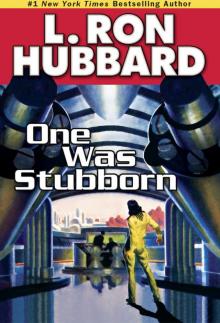 One Was Stubborn
One Was Stubborn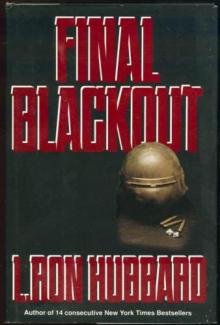 Final Blackout: A Futuristic War Novel
Final Blackout: A Futuristic War Novel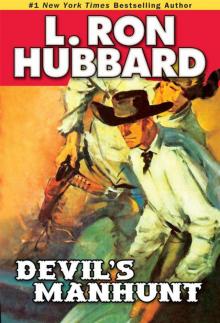 Devil's Manhunt
Devil's Manhunt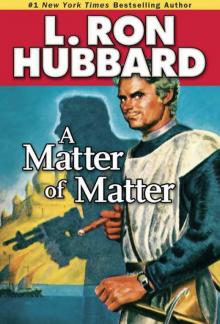 A Matter of Matter
A Matter of Matter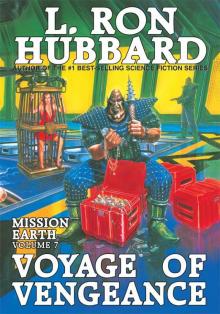 Voyage of Vengeance
Voyage of Vengeance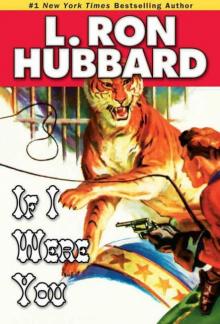 If I Were You (Science Fiction & Fantasy Short Stories Collection)
If I Were You (Science Fiction & Fantasy Short Stories Collection)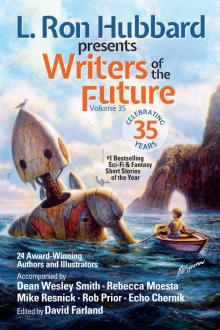 L. Ron Hubbard Presents Writers of the Future Volume 35
L. Ron Hubbard Presents Writers of the Future Volume 35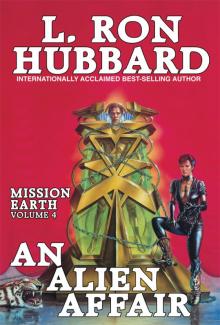 Mission Earth Volume 4: An Alien Affair
Mission Earth Volume 4: An Alien Affair Black Genesis
Black Genesis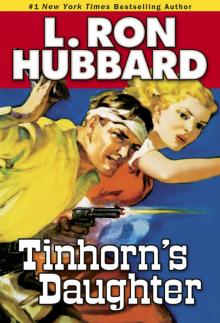 Tinhorn's Daughter
Tinhorn's Daughter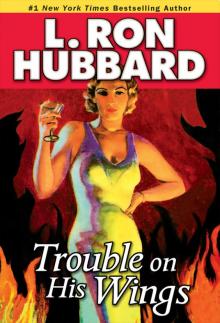 Trouble on His Wings
Trouble on His Wings Writers of the Future Volume 27: The Best New Science Fiction and Fantasy of the Year
Writers of the Future Volume 27: The Best New Science Fiction and Fantasy of the Year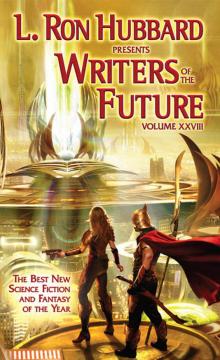 Writers of the Future Volume 28: The Best New Science Fiction and Fantasy of the Year
Writers of the Future Volume 28: The Best New Science Fiction and Fantasy of the Year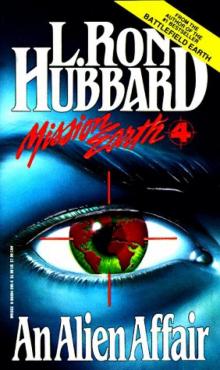 An Alien Affair
An Alien Affair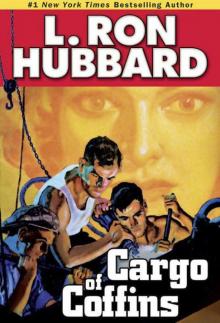 Cargo of Coffins
Cargo of Coffins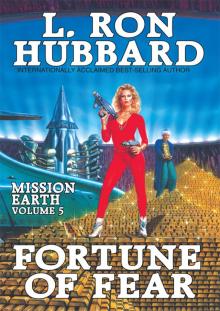 Mission Earth Volume 5: Fortune of Fear
Mission Earth Volume 5: Fortune of Fear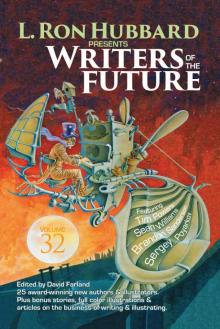 Writers of the Future 32 Science Fiction & Fantasy Anthology
Writers of the Future 32 Science Fiction & Fantasy Anthology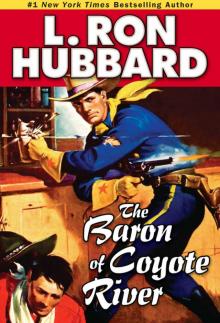 The Baron of Coyote River
The Baron of Coyote River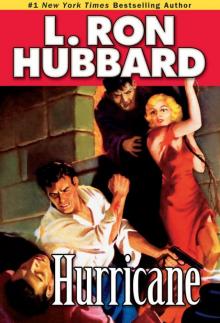 Hurricane (Stories From the Golden Age)
Hurricane (Stories From the Golden Age)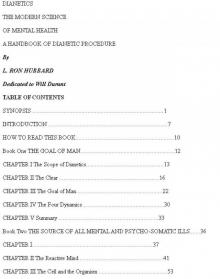 Dianetics: The Modern Science of Mental Health
Dianetics: The Modern Science of Mental Health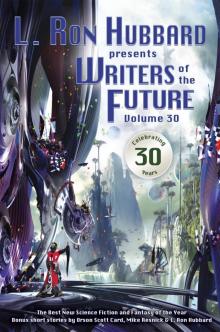 Writers of the Future, Volume 30
Writers of the Future, Volume 30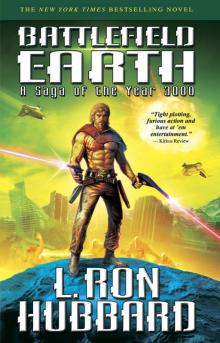 Battlefield Earth: A Saga of the Year 3000
Battlefield Earth: A Saga of the Year 3000 Fear
Fear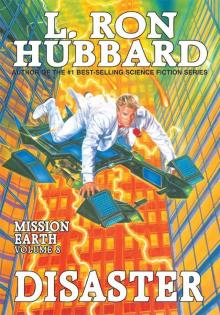 Disaster
Disaster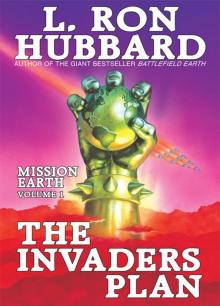 Invaders Plan, The: Mission Earth Volume 1
Invaders Plan, The: Mission Earth Volume 1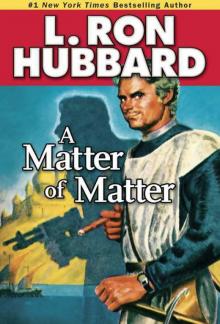 A Matter of Matter (Stories from the Golden Age)
A Matter of Matter (Stories from the Golden Age)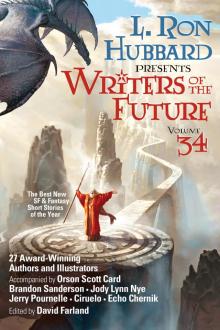 Writers of the Future Volume 34
Writers of the Future Volume 34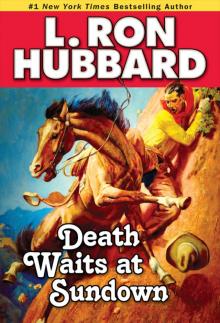 Death Waits at Sundown
Death Waits at Sundown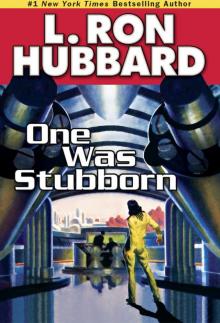 One Was Stubbron
One Was Stubbron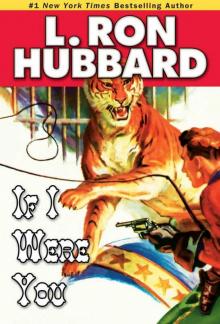 If I Were You (Stories from the Golden Age)
If I Were You (Stories from the Golden Age)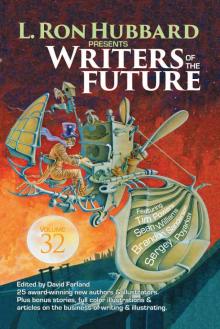 Writers of the Future 32 Science Fiction & Fantasy Anthology (L. Ron Hubbard Presents Writers of the Future)
Writers of the Future 32 Science Fiction & Fantasy Anthology (L. Ron Hubbard Presents Writers of the Future)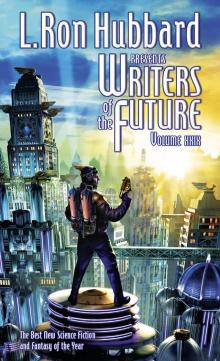 Writers of the Future, Volume 29
Writers of the Future, Volume 29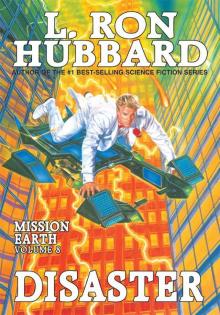 Mission Earth Volume 8: Disaster
Mission Earth Volume 8: Disaster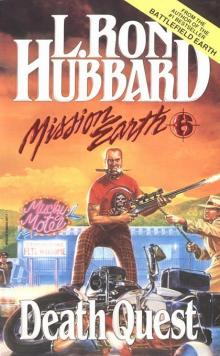 Mission Earth 6: Death Quest
Mission Earth 6: Death Quest Writers of the Future, Volume 27
Writers of the Future, Volume 27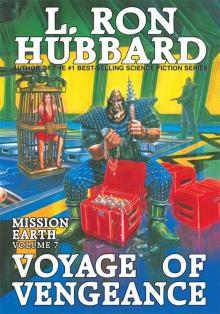 Mission Earth Volume 7: Voyage of Vengeance
Mission Earth Volume 7: Voyage of Vengeance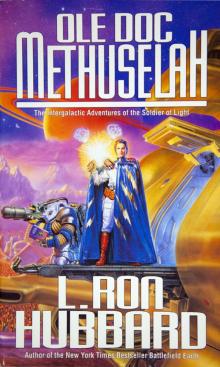 Ole Doc Methuselah
Ole Doc Methuselah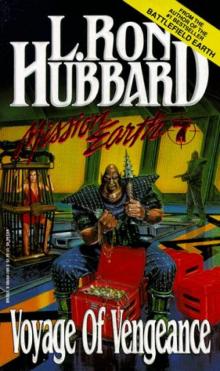 Mission Earth 07: Voyage of Vengeance
Mission Earth 07: Voyage of Vengeance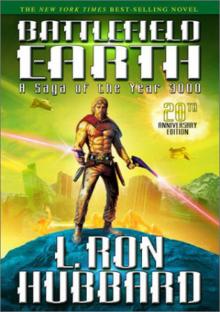 Battlefield Earth
Battlefield Earth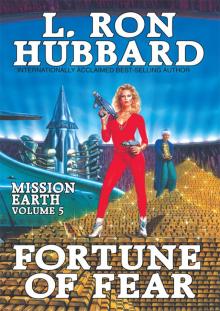 Fortune of Fear
Fortune of Fear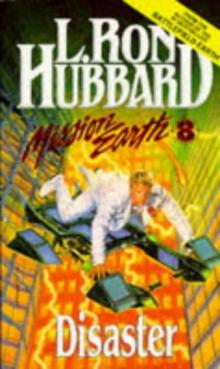 Mission Earth 8: Disaster
Mission Earth 8: Disaster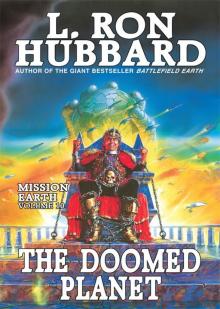 Mission Earth Volume 10: The Doomed Planet
Mission Earth Volume 10: The Doomed Planet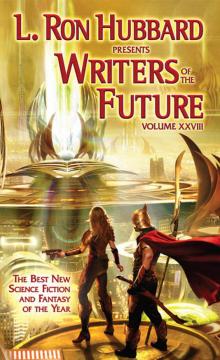 Writers of the Future, Volume 28
Writers of the Future, Volume 28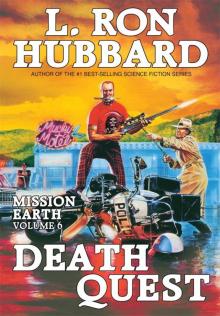 Mission Earth Volume 6: Death Quest
Mission Earth Volume 6: Death Quest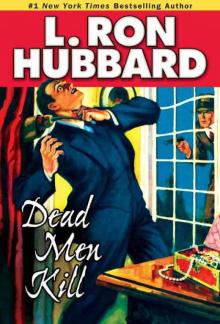 Dead Men Kill (Stories from the Golden Age)
Dead Men Kill (Stories from the Golden Age)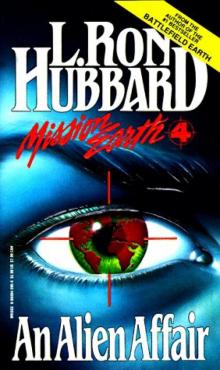 Mission Earth 4: An Alien Affair
Mission Earth 4: An Alien Affair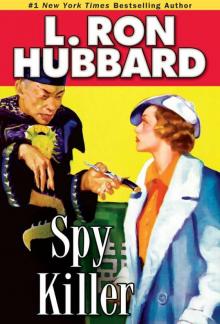 Spy Killer (Stories from the Golden Age)
Spy Killer (Stories from the Golden Age)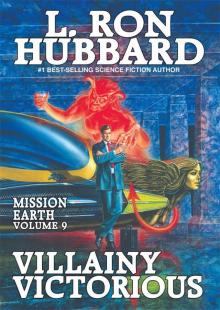 Mission Earth Volume 9: Villainy Victorious
Mission Earth Volume 9: Villainy Victorious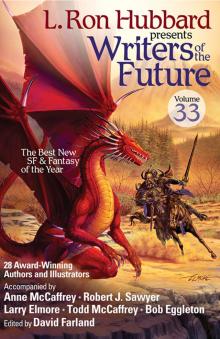 L. Ron Hubbard Presents Writers of the Future, Volume 33
L. Ron Hubbard Presents Writers of the Future, Volume 33